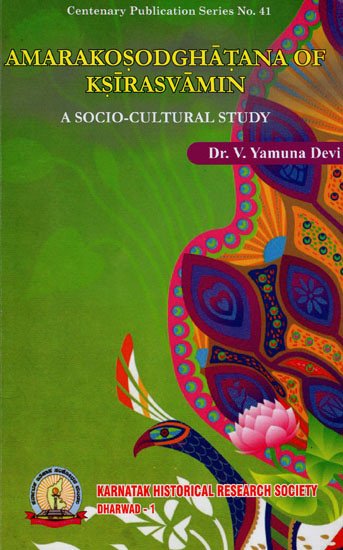Amarakoshodghatana of Kshirasvamin (study)
by A. Yamuna Devi | 2012 | 77,297 words | ISBN-13: 9788193658048
This page relates ‘Flora (16): Aromatic plants’ of the study on the Amarakoshodghatana of Kshirasvamin (in English) which represents a commentary on the Amarakosha of Amarasimha. These ancient texts belong the Kosha or “lexicography” category of Sanskrit literature which deals with the analysis and meaning of technical words from a variety of subjects, such as cosmology, anatomy, medicine, hygiene. The Amarakosa itself is one of the earliest of such text, dating from the 6th century A.D., while the Amarakoshodghatana is the earliest known commentary on that work.
Flora (16): Aromatic plants
he Nṛ varga deals with a few aromatic plant products used on person as perfumes and unguents and other mouth freshners. Some of these have been dealt with in the section on perfumes in the chapter–Social Aspects.
Under aromatic plants Amara has mentioned spices as well as different species which emit fragrance from the leaves, bark, flowers etc.; some of them are edible and used in Indian cuisine from time immemorial.
(a) Jātīkośa, Jātīphala (II.6.132; p.161)–
Nutmeg and Mace are used in different food preparations and are valuable as medicine. Incidentally they do act as aphrodisiacs.
(b) Lavaṅga (II. 6. 125; p. 159)–
[Cloves and Cinnamon:]
Lavaṅga, is called so as the unopened flower buds with stalks are gathered—
lūyate lavaṅgam |
(c) Upakuñcikā (II. 4. 125-26; p. 112)–
[Cardamom:]
It is both a flavouring agent and a medicine. Two varieties of cardomom big and small (sūkṣma upakuñcikā, bṛhat upakuñcikā) are recorded here smaller being used for sweet preparations. Both seeds yield essential oil used for various purposes.
An exhaustive report on the plant kingdom with a multifaceted description on all its aspects has been penned by Amarasiṃha. Kṣīrasvāmin has meticulously examined each and every one of the species and enhanced Amara's rendering. Kṣīrasvāmin is bold enough to criticise Amarakośa wherever he finds an error, in the synonyms, with reason. This unravels Kṣīrasvāmin's acumen in observing and interpreting mother nature's varied bounty. Only a botanist can do justice to this extent in Vanauṣadhi varga.
